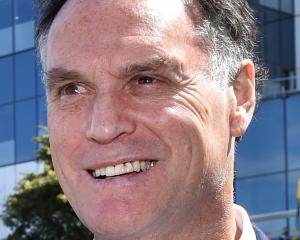
The discussion entitled ''How should New Zealanders remember World War 1?'' comes as the world marks 100 years since the start of the conflict.
A common theme from the panel was that emphasis should be put on commemorating the horror and massive cost of war, as opposed to glorifying it and celebrating WW1 as the birth of a nation.
The way in which Anzac Day was ''depoliticised'', leaving little room for dissenting opinions, was disturbing, Prof Jackson said.
Commemorations could ''rewrite sometimes unjust wars'' ''sanitise'' war and make conflict more likely.
War should instead be remembered as a ''tragedy'' and commemorations should ''break down enmity between people'' rather than reinforcing it.
Gender studies Associate Prof Annabel Cooper said the importance of WW1 in the forming of New Zealand nationhood was overrated.
There was also a lack of emphasis put on the importance of the New Zealand Wars, she said.
Prof Brooking said the way we commemorate war was ''something we need to get right'' and it was important to recognise WW1, unlike WW2, was a ''dubious'' war.











